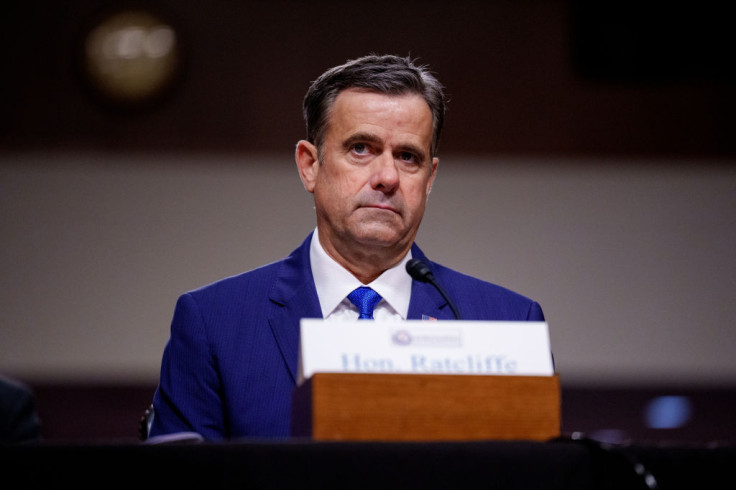
The Central Intelligence Agency (CIA) is preparing to take on an expanded role in efforts to combat drug cartels operating in Mexico, including potentially engaging in covert operations, the Washington Post reported.
CIA Director John Ratcliffe plans to apply counterterrorism methodologies developed over the past two decades to operations targeting the cartels. A person familiar with the plans told the outlet that the agency aims to leverage its expertise in tracking and disrupting terrorist networks to curb the trafficking of fentanyl and other narcotics into the United States.
The strategy involves increased intelligence-sharing with Mexican authorities and other regional partners, as well as additional training for antidrug forces. It remains unclear whether U.S. military or CIA personnel would take direct action against cartel leaders in Mexico, a scenario that former intelligence and military officials warn could damage bilateral relations. A U.S. military official told The Post that the Pentagon currently has no such plans.
The expanded CIA role aligns with broader Trump administration policies on border security, including the deployment of U.S. troops to the southern border, increased airborne electronic surveillance along the area and the threat of tariffs on Mexico and Canada if the countries don't fulfill the administration's desired action on the matter.
Ratcliffe's focus is seen as an effort to align the CIA's work with the president's priorities on crime and migration. However, it remains unclear what other agency programs may face budget reductions to fund the initiative. Some former officials suggest that a shift in resources could impact intelligence gathering on China, despite Ratcliffe's repeated assertions that China remains his top priority. The CIA director has also proposed workforce reductions, offering employees a buyout package, though the number of personnel expected to accept remains uncertain.
A key component of the administration's approach is determining whether Mexican cartels and groups in El Salvador and Venezuela should be designated as foreign terrorist organizations. Trump signed an executive order on January 20 tasking U.S. intelligence agencies with providing recommendations, but no formal action has been announced as of yet. Designating cartels as terrorist organizations could allow for expanded intelligence operations and potential covert action, though former officials warn it could be perceived as a precursor to unilateral U.S. military action in Mexico.
In fact, Secretary of Defense Pete Hegseth has recently warned that the U.S. reserves the right to move against cartels in Mexico if the Trump administration believes the country is not doing enough on its end.
Speaking to press during a visit to the southern border, Hegseth said he knows Trump "is in constant contact with the president of Mexico" and he had conversations with the "head of Defense and Navy."
"We want them to secure their own territory and sovereignty, but we reserve the right – should there not be an ability to police international and violent cartels – to protect our own sovereignty as well. We hope Mexico will step up. We expect they will."
Trump's border czar, Tom Homan, echoed the message, saying reining in on cartels would be "a great gift for the country of Mexico." Homan said such an outcome would mean "less journalists assassinated, less judges, less politicians being assassinated." "It would be a much safer country. That would be historic," he added.
The CIA has a history of involvement in Mexico's counternarcotics efforts. While cooperation between U.S. and Mexican agencies declined in recent years, collaboration with the CIA has continued. Intelligence gathered through electronic surveillance programs has contributed to actions against the Sinaloa cartel, according to former CIA Director William J. Burns.
Congress recently expanded the definition of foreign intelligence to include international narcotics trafficking, allowing for enhanced surveillance of cartel affiliates.
The Trump administration's broader counternarcotics strategy has drawn criticism from lawmakers. Representative Joaquin Castro, a member of the House Intelligence Committee, told the outlet that intelligence-sharing is vital to combating cartels but argued that the administration's approach has been counterproductive.
© 2025 Latin Times. All rights reserved. Do not reproduce without permission.




